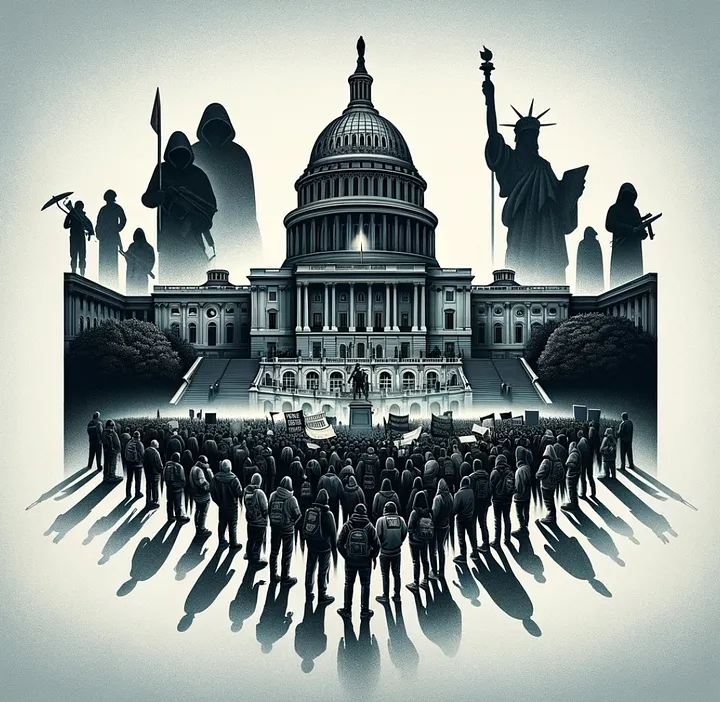In a move that has sparked significant controversy and debate, the U.S. Justice Department, under the leadership of U.S. Attorney Matthew Graves, has announced its intention to target individuals who were present at the Capitol on January 6, 2021, but did not enter the building. This decision marks a significant escalation in the government’s approach to the events of that day, raising critical questions about civil liberties and the boundaries of legal prosecution.
The Government’s New Focus
Matthew Graves, in his press conference, stated the DOJ’s intention to prosecute thousands of Americans who were around the Capitol on January 6th. These individuals, who did not enter the Capitol, are now being pursued for merely being in a restricted area without authorization, which constitutes a federal crime according to Graves.
The January 6th Context
The events of January 6, 2021, were undeniably chaotic and violent. More than 2,000 rioters forcibly entered the Capitol building, causing substantial damage and leading to the deaths of several individuals, including a police officer. This was in the wake of a rally where then-President Trump urged his supporters to “fight like hell,” leading to a massive crowd moving towards the Capitol, breaching security, and clashing with law enforcement.
The Controversy
The decision to target individuals who did not enter the Capitol raises profound concerns. Firstly, it challenges the notion of what constitutes criminal behavior in the context of a protest. Being in a restricted area, without engaging in violent or destructive actions, is now being equated with the more serious offenses of those who actively participated in the riot inside the Capitol. This has implications for how we understand and apply laws related to peaceful assembly and protest.
Legal and Ethical Implications
The ethical and legal implications of this decision are significant. It suggests a shift in how the government views and responds to dissent and protest. There’s a thin line between maintaining law and order and infringing upon the rights of citizens to peacefully assemble and express their views, even if those views are controversial or unpopular.
Conclusion
The pursuit of individuals who were present at the Capitol on January 6th but remained outside raises critical questions about the balance between security and civil liberties. It signifies a new phase in the government’s response to the events of that day, one that will undoubtedly be scrutinized in the courts of law and public opinion.












